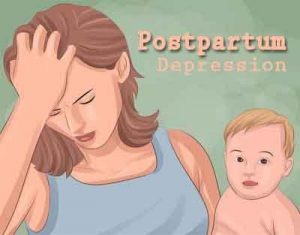- Home
- Editorial
- News
- Practice Guidelines
- Anesthesiology Guidelines
- Cancer Guidelines
- Cardiac Sciences Guidelines
- Critical Care Guidelines
- Dentistry Guidelines
- Dermatology Guidelines
- Diabetes and Endo Guidelines
- Diagnostics Guidelines
- ENT Guidelines
- Featured Practice Guidelines
- Gastroenterology Guidelines
- Geriatrics Guidelines
- Medicine Guidelines
- Nephrology Guidelines
- Neurosciences Guidelines
- Obs and Gynae Guidelines
- Ophthalmology Guidelines
- Orthopaedics Guidelines
- Paediatrics Guidelines
- Psychiatry Guidelines
- Pulmonology Guidelines
- Radiology Guidelines
- Surgery Guidelines
- Urology Guidelines
Women giving birth to boys more prone to postpartum depression

Canterbury, U.K: A new of its kind study published in the journal Social Science and Medicine reports that women who give birth to boys are much more likely to have postpartum or postnatal depression(PND). The study revealed that the odds of developing this condition increased by 79 percent when mothers had baby boys compared to baby girls.
The University of Kent researchers in their findings showed that while women with a tendency towards symptoms of depression, anxiety, and stress were always at increased risk of PND, they had reduced odds of developing PND after experiencing birth complications. This is likely because these women may receive greater post-birth support because their mental health concerns were previously recognized. This finding suggests interventions support women can be effective in preventing PND developing.
Read Also: Pain following childbirth cause of Postpartum depression
“PND is a condition that is avoidable, and it has been shown that giving women at risk extra help and support can make it less likely to develop. The finding that having a baby boy or a difficult birth increases a woman's risk gives health practitioners two new and easy ways to identify women who would particularly benefit from additional support in the first few weeks and months”, said Dr. Johns, the lead author of the study.
The researchers conducted a study to assess whether there was a relationship between the sex of infants and PND because of the known link between inflammatory immune response and the development of depressive symptoms.
The researchers used the complete reproductive histories of 296 women from contemporary, low fertility populations gathered by a retrospective survey.
The study found that overall women who give birth to males are 71-79% more likely to develop PND. Furthermore, women whose births had complications were 174% more likely to experience PND compared to those women who had no complications.
Read Also: Gestational diabetes may increase risk for postpartum depression
“These results highlight two novel PND risk factors, male infants and birth complications, which can be easily assessed by health professionals, write the authors.
Postnatal/postpartum depression (PND/PPD) is the label given to Major Depressive Disorder when the onset is in the peripartum (either during pregnancy or within four weeks of giving birth). PND is both chronically underdiagnosed and associated with a range of detrimental outcomes for mothers and their children.
For reference log on to https://doi.org/10.1016/j.socscimed.2018.10.008

Disclaimer: This site is primarily intended for healthcare professionals. Any content/information on this website does not replace the advice of medical and/or health professionals and should not be construed as medical/diagnostic advice/endorsement or prescription. Use of this site is subject to our terms of use, privacy policy, advertisement policy. © 2020 Minerva Medical Treatment Pvt Ltd